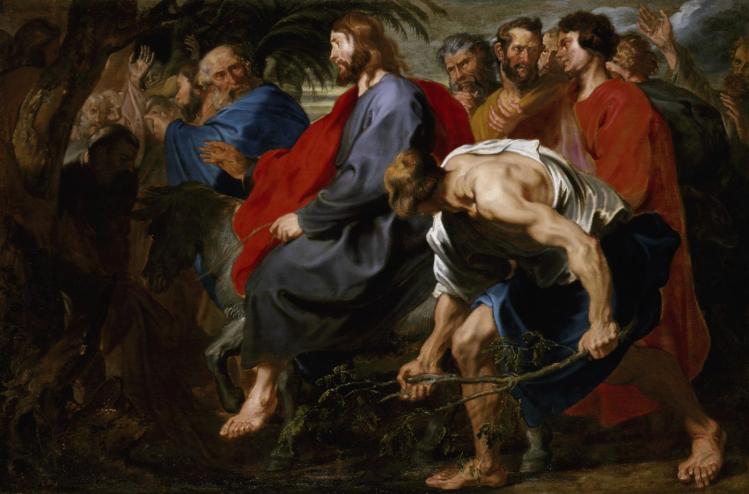
“Whoever loves his life loses it,
and whoever hates his life in this world
will preserve it for eternal life.” (John 12:25)
This verse in today’s Gospel brought my reading to a hard stop. Maybe I love my life too much to think about hating it. I know too many systems that too many times have used verses like this one to justify the creation of pueblos (peoples and places) they mark for death, so that others may dehumanize and abuse in order to rule this world (see verse 31). Powerful people too easily use verses like these to manipulate pueblos into hating their lives in this world for the sake of preserving eternal life. Guilt, blame, and shame are deployed in this manipulation. In a convoluted theology, the hatred of our lives means reducing ourselves to a state of total depravity, to nothing but sinful people—people who have missed the mark with God. Then those pueblos become part of the throwaway culture that Pope Francis denounces in Laudato si’. A great con has occurred.
This reflection is actually the second I’ve written on a scripture passage that I know has been used to build theologies of colonization, oppression, and death. I wrote recently on Luke 18:14 in a short piece that engaged the text for dealing with these heartbreaking issues. When the request came to reflect on this Sunday’s reading, I yielded to what seemed a Spirit-filled call to direct me to further pondering.
The hard stop in my reading made me notice something about myself. Many times when reading the gospels, I focus on the words coming from Jesus. However, others mentioned in today’s Gospel caught my attention: “Some Greeks,” Philip, and Andrew. The story enters so easily into the conversational level that one would think “some Greeks” or the people who approached Philip already knew him. Or that this group of people who were probably not ethnic Jews either stood out among the worshippers at the Passover feast or were demanding attention in some way. Otherwise, why would Philip pay any attention to them among what I imagine to be crowds of people? Maybe their presence was still questionable, so Philip sidebars with Andrew before going to Jesus.
I now replay this scenario in my head as a group approaches Philip. Philip knows one or two or the entire group. Maybe he had conversed with them on another occasion. Philip then goes to Andrew to check whether this group is worth Jesus’ time. Andrew and Philip decide to return to the group of “some Greeks” and then, as my family would say, “Ahí va toda la bola”: the small mob makes their way to Jesus. The reader does not know the question posed to Jesus. It seems the question itself is not important. The people involved in the conversation are important.
The word “conversation” can be understood in many ways: to keep company with; to come together; to turn about together. We hear in John’s gospel today how Jesus takes the moment with la bola to converse with them. “Some Greeks” have some questions, and Jesus voices many different thoughts, including his own troubles. Somehow, Jesus thinks this information will convince la bola. But just in case the crowd is not convinced and their questions go unanswered, a voice from heaven is heard: “I have glorified it and will glorify it again.” The voice from heaven delights in the unnamed “it.” Tied with the words of Jesus, “it” can be understood as all people or all things.
I recently heard somewhere that very little failure, about 10 percent, should be assigned blame or guilt. Yet, when people were asked how often they felt blamed at work and in their families, they overwhelmingly said 70 to 90 percent of the time. As humans, we have evolved to fear failure because it helps us stay alive. The message of judgment in this passage is not about failure as blame, shame, and guilt in sin. Failure and sin should not be equated. Failure can be a tool by which humans can learn and change. “The ruler of this world will be driven out… when I am lifted up from the earth, will draw all things to myself” (31-32).
Conversion, therefore, means turning together, rather than only focusing on a total depravity caused by individual sin. The message of today’s Gospel highlights the turning together of Jesus and the crowd, Philip, Andrew, the Greeks, and the voice from heaven all turn together to delight in all things, because the Son of Humanity will be glorified and all will be drawn into that glory, into that delight. May we spend the remaining days of this Lenten journey focusing on turning together (conjuntos)—away from doubt, blame, shame, and guilt, and toward delight.